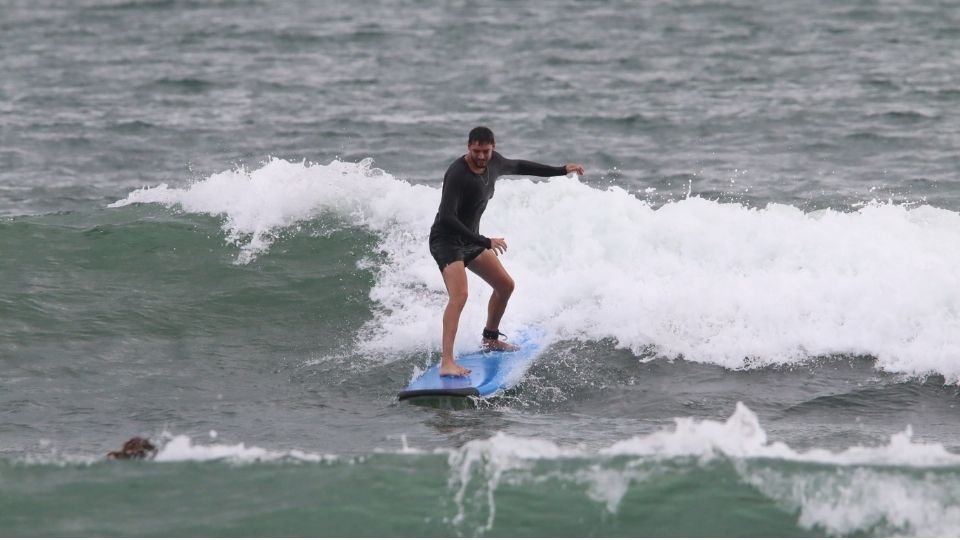
Beginner Surfer Tips: What to Prepare and Avoid Before Surfing? Surfing is one of the most exciting outdoor activities in the world. It combines the power of the ocean with balance, timing, and adrenaline. But before paddling out into your first wave, preparation is key—especially for beginners. If you’re wondering how to get started safely and confidently, this guide “Beginner Surfer Tips: What to Prepare and Avoid Before Surfing?” offers all the essential advice to help you avoid rookie mistakes and make the most of your first sessions.
Essential Surfing Preparation for Beginner Surfer
1. Choose the Right Surfboard for Beginner Surfer
The first thing every beginner needs is the right surfboard. A foam longboard (8 to 9 feet) is ideal for learning because it offers better stability and floatation. Unlike shortboards, foam boards are soft, making them safer during wipeouts. Avoid starting with a shortboard—it’s not beginner-friendly.
2. Wear the Right Surf Gear
Depending on your surf location, gear matters. In tropical climates like Bali or Hawaii, a rash guard protects you from sunburn and board rashes. In colder regions, wear a wetsuit to stay warm. Reef booties are also helpful for breaks with sharp rocks or coral reefs.
3. Use Surfboard Wax and a Leash
Always wax your surfboard before hitting the waves. Wax gives your feet grip and prevents slipping. Don’t forget the leash—this attaches the board to your ankle so it doesn’t float away when you fall. A board without a leash can be dangerous to you and others.
4. Beginner Surfer Tips: Apply Waterproof Sunscreen
Sun exposure is intense during long surf sessions. Use reef-safe, water-resistant sunscreen with SPF 50+ to protect your skin. Apply it 30 minutes before paddling out, especially to your face, neck, and arms.
5. Check Weather and Surf Conditions
Before you head out, check the local surf forecast. Apps like Surfline or MagicSeaweed offer real-time updates on wave height, tides, wind direction, and swell size. Avoid going out in rough conditions, strong rips, or high surf if you’re a beginner.
Mental and Physical Readiness for Beginner Surfer
6. Warm Up Properly
Surfing uses muscles in your shoulders, back, and legs. Start with a warm-up: stretch your arms, rotate your shoulders, and do light cardio like jogging or jumping jacks on the beach. This improves blood flow and reduces the risk of injury.
7. Beginner Surfer Tips: Practice Swimming in the Ocean
Even if you’re a decent swimmer in pools, the ocean is different. Learn how to swim in currents, float calmly, and stay relaxed when underwater. Comfort in the ocean is essential before you learn to surf.
8. Take a Beginner Surf Lesson
A professional surf instructor can teach you safety basics, paddling technique, how to pop up on the board, and how to read waves. Most lessons also cover surf etiquette and local hazards. One session can make a huge difference in your confidence.
9. Beginner Surfer Tips: Learn Surf Etiquette
Respect in the surf lineup matters. Key rules include:
- Don’t “drop in” on someone else’s wave.
- Wait your turn.
- Paddle wide to avoid cutting through someone’s ride.
- Smile, be polite, and respect locals.
As Beginner Surfer, What to Avoid Before Surfing?
10. Don’t Surf After Drinking Alcohol
Never surf drunk. Alcohol impairs judgment, balance, and reaction time—all critical skills for staying safe in the water. Even a few drinks can increase the risk of accidents, drownings, or injuries. Save the celebration for after your session.
11. Avoid Heavy or No Meals
Surfing on a full stomach can make you feel sluggish. On the other hand, surfing on an empty stomach can leave you weak and dizzy. As Beginner Surfer, eat something light and healthy about 1–2 hours before your session. Think smoothies, oatmeal, or fruit with nuts.
12. Beginner Surfer Tips: Stay Away from Crowded Surf Spots
Beginner-friendly waves are typically smaller, slower, and have fewer people. Avoid surf breaks packed with experienced surfers—they move faster and may not be patient with beginners. Search for beaches labeled “beginner-friendly” or “soft wave spots.”
13. Don’t Use a Shortboard Too Soon
Shortboards are designed for sharp turns and quick maneuvers. They’re harder to balance, paddle, and catch waves with—especially if you’re just starting. Stick with a soft-top longboard until you’ve mastered the fundamentals.
14. Don’t Skip Watching the Ocean First
Before paddling out, take 5–10 minutes to watch the waves. Where are they breaking? Where are people paddling in and out? Are there any rips or hazards? Understanding the ocean’s behavior helps you avoid dangerous areas.
15. Don’t Panic After a Wipeout
Wipeouts are part of learning. When you fall, protect your head with your arms and let the wave pass. Don’t panic—stay calm, and wait to surface. Once above water, look around and retrieve your board.
Extra Tips to Boost Your Surfing Progress
- Practice pop-ups on land every day. This builds muscle memory so you can stand quickly and smoothly on the board.
- Surf with a buddy. Not only is it safer, but it’s also more fun.
- Don’t rush progress. Surfing is a process. Celebrate small wins like catching white water or paddling out further.
- Stay hydrated. Bring water with you and drink before and after your session.
- Respect the ocean and environment. Don’t litter, don’t step on coral, and leave the beach cleaner than you found it.
Conclusion Beginner Surfer Tips: What to Prepare and Avoid Before Surfing
Starting out as a beginner surfer can feel overwhelming—but it doesn’t have to be. By following these simple steps in our guide “Beginner Surfer Tips: What to Prepare and Avoid Before Surfing?”, you’ll enter the ocean with greater confidence, awareness, and readiness. Whether you’re surfing in Bali, California, Australia, or South Africa, these universal tips will keep you safe and help you enjoy the waves more.
The key is to prepare the right gear, stay physically and mentally ready, and avoid common mistakes—like surfing under the influence, using the wrong board, or paddling into dangerous areas. Most importantly, respect the ocean, your fellow surfers, and your own learning process. Surfing isn’t about perfection—it’s about progression.
So wax up your board, apply your sunscreen, and get ready to catch your first wave. Your surfing journey starts now!
- How to Get From Sanur to Gili Trawangan (Best Ways to Travel)
- What to Do in East Bali: Top Adventures, Culture & Hidden Gems
- How to Get From Lombok to Nusa Penida (Best Routes + Tips!)
- Bali to Nusa Penida: Best Ways to Get There (Updated Tips & Prices!)
- Bali Is in Indonesia: Everything You Need to Know About This Island Paradise





